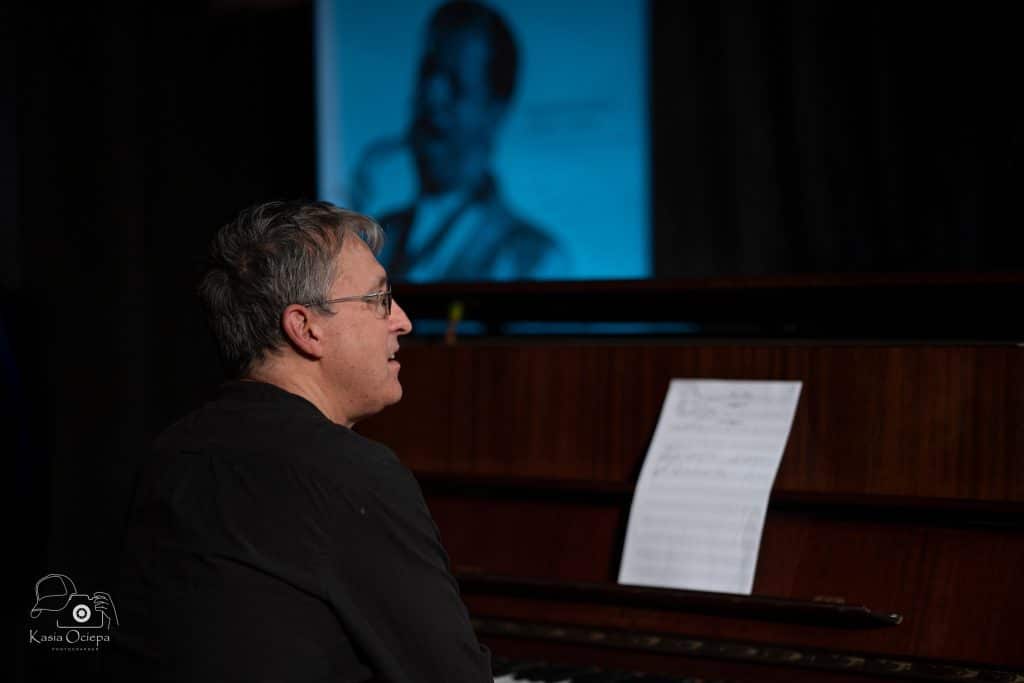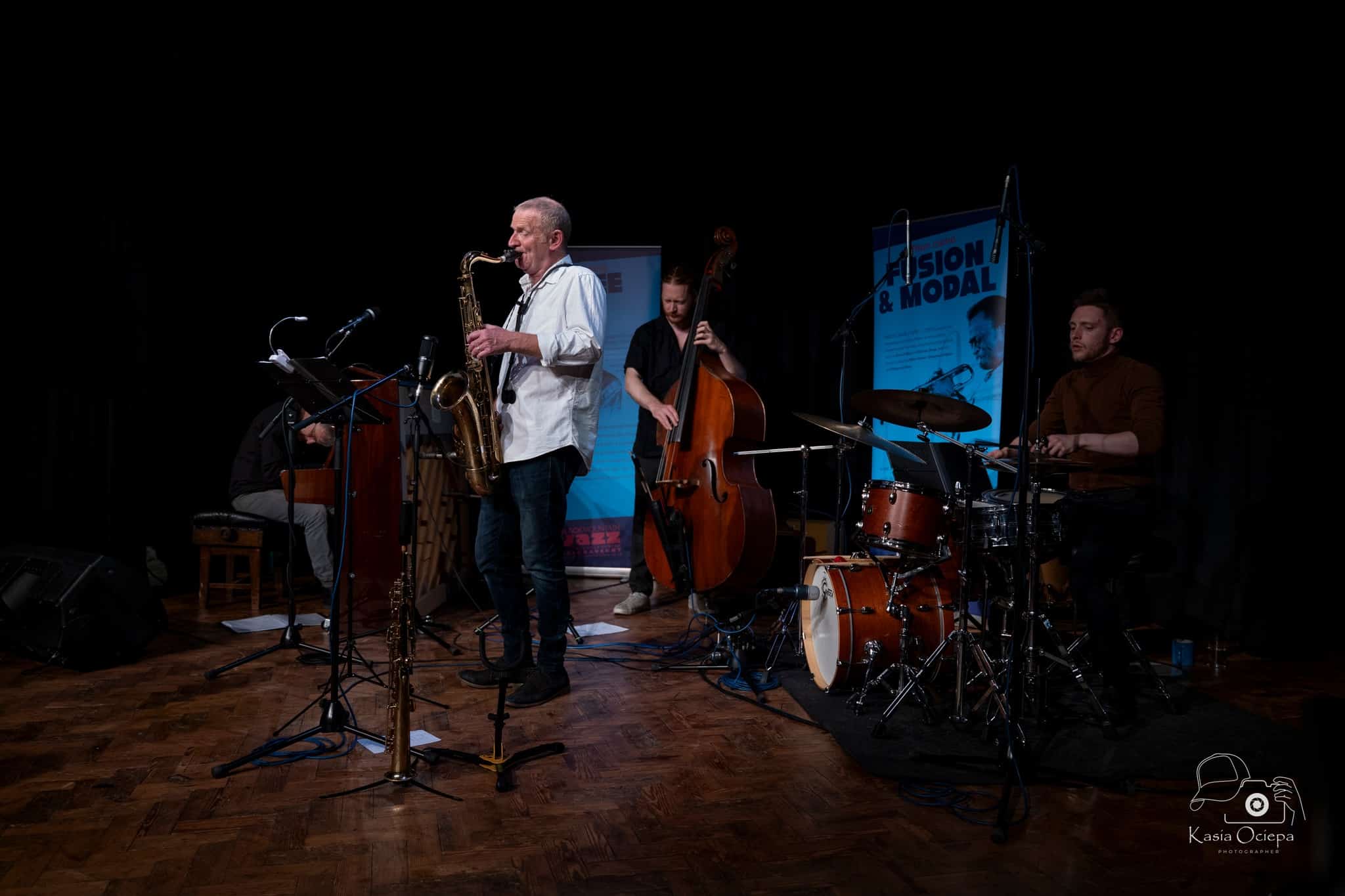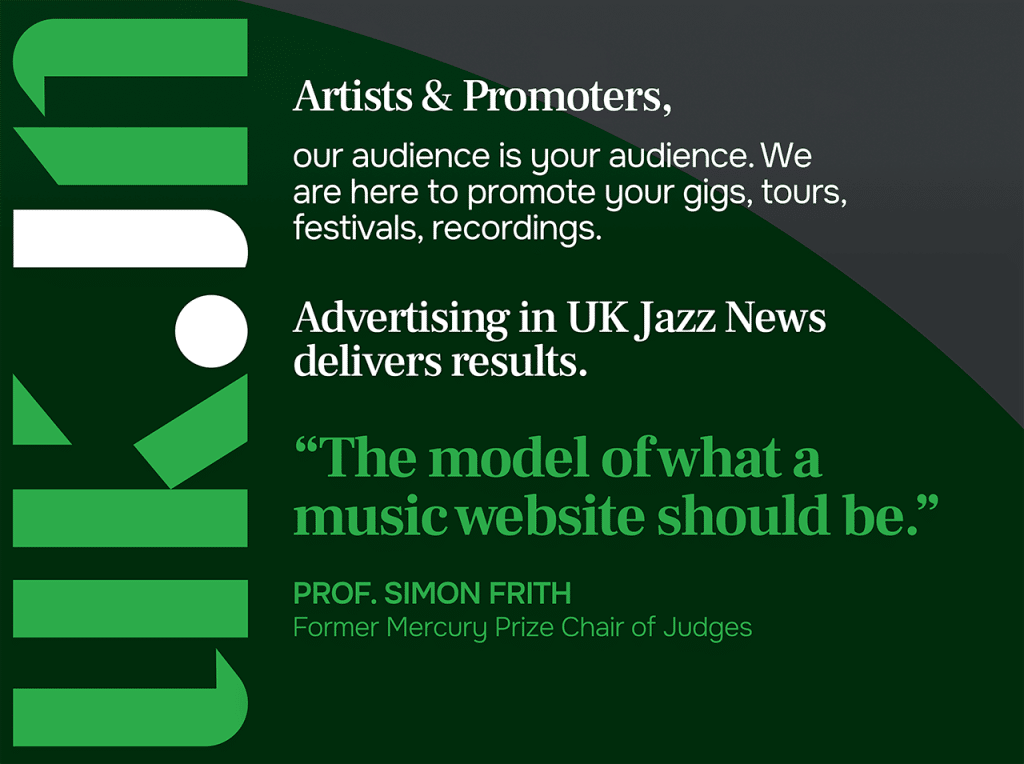Sometimes two kindred spirits can follow long playing trajectories and reach similar points in jazz’s vast musical landscape. So it is with saxophonist Jon Lloyd and pianist John Law, who first worked together nearly 35 years ago. Their current quartet with Alex Goodyear on drums and Nick Pini on bass is a vehicle for near-minimalist beauties that have delighted audiences for the last few years. UKJazznews asked how they settled on the understated attractions of their current approach. Interview by Jon Turney.
Back in 1990, he recalls, Jon Lloyd was running a free jazz gig in Brixton and put on John Law’s trio Atlas with the now legendary free players Paul Rogers and Mark Sanders on bass and drums. He sat in with them on alto sax and there was an immediate connection. “I was starting to write oblique, energetic Braxtonesque pieces, and pretty soon the four of us were recording Syzygy, which for me started my serious recording and playing career.”
Like the pianist, he has moved away from the sound he sought then toward something generally rather gentler in approach. “I needed to change from playing high energy free music, which I was known for, and go somewhere else creatively. I loved the European, ECM sound from the start of my playing life, and was inevitably drawn to that.”
Citing ECM can evoke stereotypical reductions of that label’s sound – all moodily drifting chords and echoing Nordic soundscapes – but Lloyd rightly offers a more positive characterisation. “The ECM aesthetic is not really one thing. I think of it in terms of a fusion of jazz harmonic language, straight rather than swung rhythms and the acceptance of classical and folk forms within it. There is also a primary focus on the reflective aspects of music. There is exuberance too, but always a pull back to the stillness at the centre. That seems to be key.”

For John Law, the music they make together re-emphasises certain fundamentals after many years of “continuously trying to get better, technically”. The two came together for a concert in 2022, which began a duo project and recording drawing on renaissance music, Naissance. ”Playing in the duo and then with the new quartet, I realised how much this music meant to me. Jon’s whole sound world and aesthetic outlook brought me back to a realisation – post-Covid – of why I originally wanted to play music.”
But if in some ways a return to basics, that does not make it straightforward to perform. “In some respects, it was music that a child could play yet, as an adult and having to come to simplicity all round the houses, as it were, it’s actually also very difficult. It involves selection, doing away with ego, and concentrating on beauty and space. Sometimes it involves forgetting all the things one’s learnt.”
Of course there has to be grit in the oyster to yield musical pearls, and the pianist has just enough reservations to generate the tension that helps a group stay creative. “I like a very varied diet, and I do slightly part company from Jon on attachment to the ECM aesthetic. I’m personally not quite so wedded to it, or certainly the way it’s perceived – the label in fact has an extremely wide range. But the music that Jon has been feeding me, over the last few years… I do like it a lot, but sometimes it gets too much. And then I find that sort of aesthetic of poise, space, generally the same scales/modes and the same chords over and over again… sometimes I find it a touch navel-gazing and then I almost have to put on some Status Quo! Or at least some Joe Henderson or some hard bop…”
Lloyd, for his part, is aware the ECM association can elicit fixed expectations, but points out that “predictability is a trap in any music. Bebop, free jazz, tranquil ECM, abstract improv can all be very predictable. But mostly it tends to be detractors who cite predictability as a problem. Bebop fans can click their fingers to fast 32 bar tunes all day. ECM fans can bliss out for hours!”
The key to quality is in the playing, of course. And while the current quartet with Law is rarely oblique and not Braxtonesque in any degree, some things don’t change. Lloyd: “when we began working together, although the source material was very edgy, and often harmonically indeterminate, John and I worked much as we do now; by listening to each other and responding to what each other plays. We have collaborated on such a lot of different music since, but I think because we both like melody and the abstract in fairly equal measure, we tend to mould one into the other quite often, and are always looking for connections…”
And as Law puts it, “In actual quartet performances there are naturally many instances where you can tell, as a listener, that Jon and I have a long and fruitful history together.” That comes across in their duo work, but has added dimensions in the quartet. Law elaborates: “I was struck how, from the very beginning, all four members fitted together, following Jon’s compositional and aesthetic lead – generally quite gentle and only more insistent if we radically departed from what he’s trying to do. All of us were following not our egos or even our instrumental pre-occupations, but serving the music.”
In keeping with overall approach, that can mean doing less, especially for the rhythm section, perhaps. Law is full of praise for drummer Alex Goodyear. “I’m struck by how little he often plays on the album. How quietly. How sensitively. He does what’s just right to create the musical result. That’s extremely rare in someone his age. I don’t think I could have done it; I’d have been showing off the whole time!”
Nick Pini, similarly, is a technically highly adept bass player, but “he can just play very simply; sometimes he’ll sit on a groove for the whole tune, because he deems it the right thing at that time.” This shared sensitivity to the needs of the group along with Lloyd’s compositions and aesthetic leadership are the outstanding qualities of the group, according to Law.
What you hear when they play is not a devotion to any particular sound but another kind of freedom, as is clear when Lloyd reflects again on what he means by a European sound from ECM. “The piano trio is almost perfect for ECM, since the music can move from stillness to energy in a heartbeat, and the feel can go between swinging jazz and classical and all points in between. There is so much stylistic freedom in the right hands”, he says.
On the other hand, “Sax or trumpet tend to be a harder proposition, since their sounds go with classic jazz in a listener’s mind. John Surman, years ago, said that guys like him and Charlie Mariano were trying to move away from standard jazz language within ECM groups like Eberhard Weber’s Colours and the Miroslav Vitous quartet. Or take Garbarek, who developed his own language in a phenomenally single-minded way. You can hear his movement from Coltrane energy, Ornette freedom (in the early years) through to Brecker fusion, European folk, Indian classical … Everything is in his playing! Lots of the early ECM artists came from very free musical backgrounds, so they weren’t stuck in a style early on. And modern Scandinavian musicians, like Arve Henriksen, have almost managed to remove jazz language completely from their music. With beautiful results.”
And we may hope for more beautiful results from the quartet, as Lloyd adds to their repertoire, still in pursuit of the same quality. “I have a really wide approach to new material. I’ve written many tight, oblique tunes in the past but now I aim for direct simplicity. I try to find chord voices that create a mood, then imagine the band members working with it. I’m a sucker for basslines, so have to watch that I don’t just find grooves! I also try to avoid predictable chord sequences. Basically I love sitting on a few good chords, and settling into it. It’s the calm I think we all need!”


